[NOTE: This review contains minor spoilers]
This is the final film in Christopher Nolan’s Batman trilogy. Does it rise to the occasion, or fall prey to the dreaded 3rd movie curse?…
My review for “The Dark Knight Rises” may get me death threats.
Just so you know, this is not going to be one of those typically gushing reviews you might’ve seen out there. This is — horror of horrors — going to be a brutally honest review. Which for some, justifies extreme responses like threatening grievous bodily harm and/or murder. As the few critics on Rottentomatoes.com who dared give the film a negative review recently discovered.
It says something about the current state of fandom, and says a whole lot more about the fanatical following writer-director Christopher Nolan has amassed so far. In the eyes of the so-called “Nolanites”, the man can do no wrong. “In Nolan We Trust” is the mantra floating around the net. For the most part, the adulation is well-deserved. However, the man is not without his weaknesses. And they are clearly present in this film.
Now, “brutally honest” doesn’t mean I’m going to do nothing except rip this film to shreds. There are quite a few things I love about “The Dark Knight Rises”. Parts of it were in fact so emotionally affecting, I was brought close to tears. But since I’ve already set the tone for the negatives, let’s address those first.
The story takes place 8 years after the events of “The Dark Knight”. Organised crime has been effectively wiped out, thanks to a tough new law that keeps criminals behind bars. A law made possible by a cover-up, for which Batman has taken the blame and been made an outcast. So the only thing left for him to do is retire. That’s not enough for Nolan, since he’s decided to make the guy a physical and emotional cripple as well, apparently due to his crimefighting injuries and the pain of his childhood sweetheart Rachel’s death. Bruce Wayne now spends his days hiding from the outside world.
This has the unfortunate effect of making the hero uncharacteristically mopey. The Bruce Wayne of the last two outings was driven by rage and guilt, never self-pity. 8 years is a very long time to stay hurt, especially for someone with such a strong, nay, obsessive personality. I can buy Bruce hanging up his cape & cowl because there’s no more need for Batman, but is it necessary to show he’s lost the will to be Batman? Nolan seems to think so, as his obvious intention is to put Bruce in a deep slump so that Batman’s return can feel more dramatic. He needn’t go so far. He has Bane for that.
Okay, I’m going to cite a movie franchise that by right has no business being compared with Nolan’s Batman films… the “Rocky” series. Well, hear me out. You know how cartoonishly simplistic Stallone’s boxing flicks are, especially the later instalments. Yet they also work on a primal, visceral level. Hero gets his ass handed to him by the baddie, which gives him all the impetus he needs to come back for a rematch. It’s single-minded. Here, before any of that can happen Bruce seems to take forever to get out of his house and into the Batsuit. Meanwhile, a lot of stuff fills the background. And I mean a lot.
There are subplots galore: a mysterious young beat cop John Blake and how his background in an orphanage ties back to the Wayne family; another cop named Foley who (unconvincingly) goes from selfish to selfless; Bruce’s dabbling in a clean energy project; some corporate shenanigans by enemies of Wayne Enterprises; and Commissioner Gordon’s guilt over the lie he helped Batman perpetrate that’s been eating him up inside.
To Nolan’s credit, all these threads do pay off one way or another. But I’d like to know, why do we need such a busy, crowded film? I just can’t shake the feeling that Nolan added these subplots not out of any real need to service the main thrust of the film — Bruce Wayne’s journey — but from a desire for complexity in his stories.
Nolan is obsessed with structure. He constructs his stories like an intricate jigsaw puzzle, with highly complex pieces meant to fit together to reveal the whole picture. You can see it throughout his body of work: in “Memento”, “The Prestige”, “Inception”, and now this. It works very well for tight, focused stories where there is a clean narrative through-line. Meaning you never lose sight of whose story is being told. And that’s the main problem with “Rises”. It’s simply too sprawling, too bloated that it ends up, if not completely losing sight of its protagonist, then certainly losing its focus. After a while, I started to get bored of all the filler and just wanted the film to return to Bruce Wayne/Batman’s story. And there is a very compelling story in there somewhere, especially in his relationship with his butler Alfred. More on that later.
Also, Nolan revealed in interviews that he (and co-writer Jonathan Nolan) wanted to deal with the theme of social class struggle, which was inspired by Charles Dickens’ book “A Tale Of Two Cities”. All well and good — if he actually went somewhere with it. Any socio-political underpinnings the film may be trying to conjure ultimately ring hollow. Without giving away too much, the revolution that happens here isn’t really about the haves versus the have-nots, and in the end doesn’t even matter to the plot. The only thing it accomplishes, besides providing some cool dystopian visuals, is to add to the overall feeling that perhaps the Nolans didn’t quite figure things out as well as they thought.
This next issue of mine might seem at face value like a fanboy nitpick. But it’s actually a big deal in the context of characterisation. Going back to what I was saying about “Rocky” earlier, one of the biggest pleasures of those movies is in seeing how the hero eventually triumphs in a rematch with the villain. Let’s not kid ourselves here, we all want to see the hero deliver payback because he’s earned it and the baddie deserves it.
“Rises” simply fails to deliver that. At least not in any satisfying way. The all-important “victory moment” over Bane should be no one else but Batman’s to claim, and yet he is pretty much robbed of it. You could argue he already had that moment earlier in their showdown, but as far as I’m concerned the fight wasn’t over. If anything, in a pivotal development both sides suffer a serious disadvantage, so they’re evenly matched at that point. I’m still pissed off thinking about the missed opportunity. Adding insult to injury, all this comes after a revelation that severely diminishes Bane as the powerful character he was made out to be.
There is a positive flip-side to this. The fact that I got so annoyed goes to show how well Bane was built up as the antagonist. I think Nolan made a very smart choice to go with a more physical villain this round, and it’s not just to avoid comparisons with Heath’s Ledger’s Joker (though that’s a futile exercise). The Bane that Nolan and Tom Hardy have put on screen is the living expression of Blunt Force Trauma. In their epic first encounter, you can feel the weight of inevitability bearing down on Batman. You already know he’s not just going to lose, he is going to be utterly broken. How many fistfights can you think of where you genuinely fear for the hero’s life? So kudos to the cast and crew for giving us such a nail-bitingly intense fight scene.
Hardy is a good part of the reason why Bane is so frightening. The guy’s got tonnes of screen presence and even behind a mask that restricts most of his facial expressions, Hardy finds interesting ways around it. The look in Bane’s eyes and the tone of his voice never quite match, and that’s by design. That audio-visual disjoint puts you on an uneasy edge with this guy. I also like the booming, metallic quality of his voice. It’s pretty cool, even if it invites Darth Vader jokes.
Batman himself is well-handled by Christian Bale as always, even if he starts off the film on too sombre a note. There’s a grounded, lived-in quality to Bale’s performance, a sure sign of an actor truly embracing his character. Bale has publicly admitted how hard it was to say goodbye to the role and it shows. His is THE definitive Batman/Bruce Wayne, and will continue to be so for a long time.
The supporting cast are a mixed bag, with Anne Hathaway being the biggest surprise for me. Her Catwoman is sexy, unpredictable and charming, though her romance with Batman feels somewhat forced. Joseph Gordon-Levitt is fine, if slightly safe in his portrayal of the earnest, determined cop John Blake. A bit more fire in his performance would’ve served the character better. Morgan Freeman and Gary Oldman are sadly shortchanged by the script, and their characters come off far less engaging than before. And I wasn’t particularly impressed by Marion Cotillard either.
In stark contrast, we have Michael Caine’s butler Alfred Pennyworth. Watching him in “Rises” it suddenly dawned on me: Alfred is the heart and soul of the film and I’d argue, the entire trilogy. He has been Bruce’s unwavering moral compass through his darkest hours. The only reward he asks is not to suffer the pain of burying yet another member of the Wayne family. When Alfred finally breaks down, his famous English reserve completely failing him, it is truly heartwrenching to witness. Caine plays it so beautifully raw. I’m hard-pressed to name any other acting showcase this year that moved me as much as this one.
There are other things to savour. Wally Pfister’s cinematography is suitably grandiose, and on a giant IMAX screen the visuals are breathtaking. He really does do a lot of justice to Nolan’s vision, since the director has gone all-out here to put pure spectacle on the big screen. There’s just something gloriously old-fashioned about Nolan’s style, using a sea of real extras where others would resort to digital stand-ins, or going as wide as his lens can possibly allow to capture the scope and magnitude of a scene. Cecil B. DeMille would be proud.
Gadget freaks won’t be let down, as the Batpod (my favourite vehicle in the Nolanverse) gets a lot of screen time, with a few new tricks up its axle. And while the Caped Crusader’s new ride The Bat may not be the most photogenic, it moves and sounds awesome. I would’ve liked to have seen more use of Batman’s EMP Gun, though.
One of the biggest stars of this show is the Hans Zimmer score. Even when the action isn’t as exciting as it should be, or when film fails to connect on a thematic or narrative level, the music is there to make you FEEL. It’s easily among the most emotive, dynamic movie soundtracks I’ve heard in a while. I hear an Oscar nod in the distance…
Each of the Batman films features a central theme, with “Batman Begins” dealing with fear, and “The Dark Knight” addressing anarchy. “Rises” is about death, both in a literal and figurative sense. It is about finality and the end of things. It’s Nolan’s way of putting his final stamp on the saga and by bringing it back full circle to his previous films, conclusively finishing it up. Unfortunately, death as a theme has unwittingly become even more overt due to a recent real-world event: the tragic cinema shooting in Colorado where 12 people lost their lives. In a morbid way, it sort of lends extra poignancy to the ending.
Of course, with a title like “The Dark Knight Rises” Nolan is also talking about rebirth, or resurrection. So the finale is filled with the promise of new things, the resurgence of hope, and the rewarding of an old man’s faith. The ending is wonderfully rousing and almost single-handedly neutralises all the major grievances I have with the rest of the film. Almost.
I still feel “Rises” is for the large part a frustrating, overstuffed and (occasionally) clumsily-handled affair. Nolan made some shockingly poor decisions story and character-wise. And yet, the film’s many flaws are quite evenly balanced by its virtues. This also means that on the whole, it’s missed the chance to be great and has to settle for merely being kinda, sorta okay.
Now please don’t kill me for saying that.

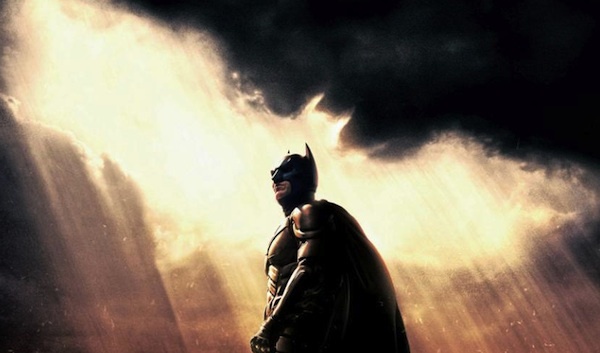
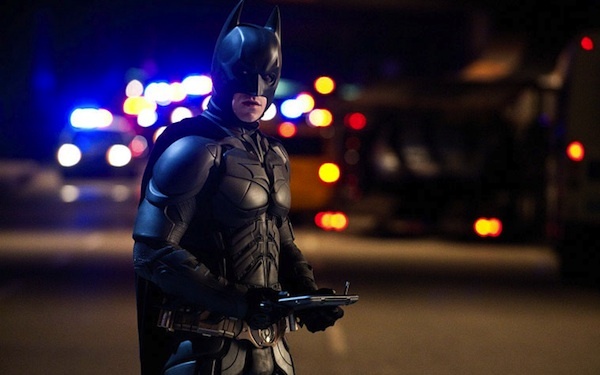
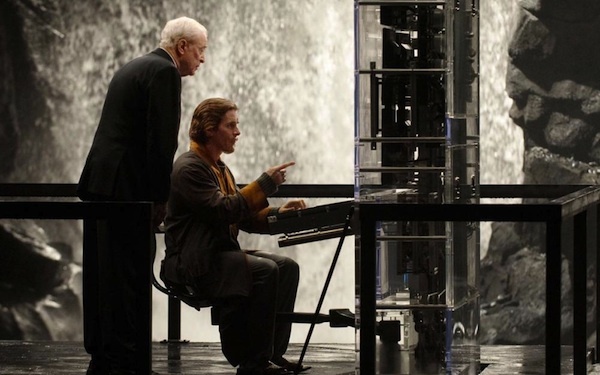
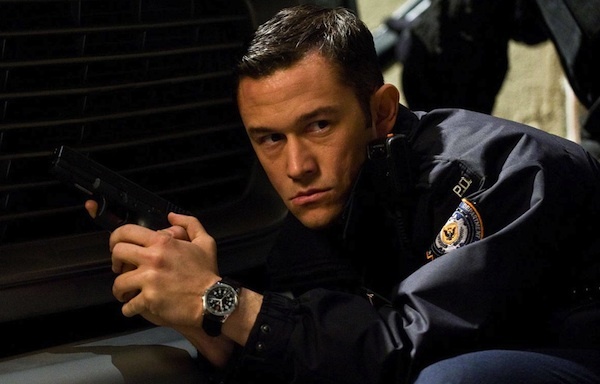
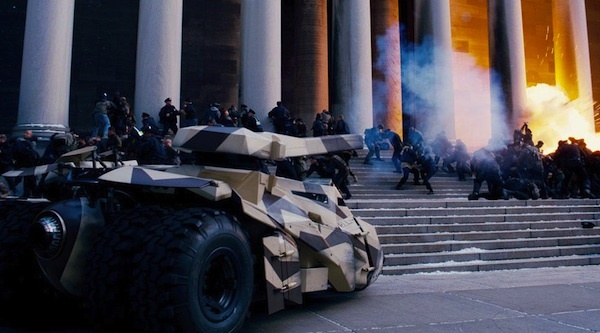
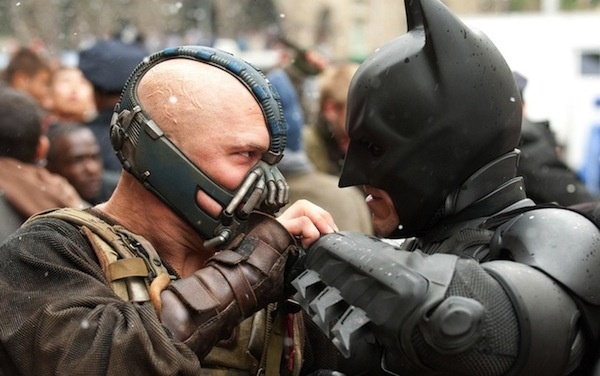
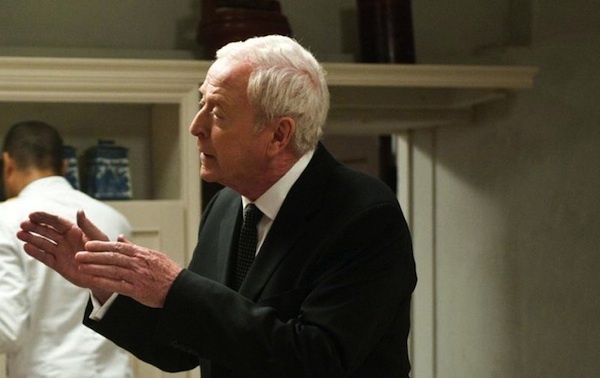
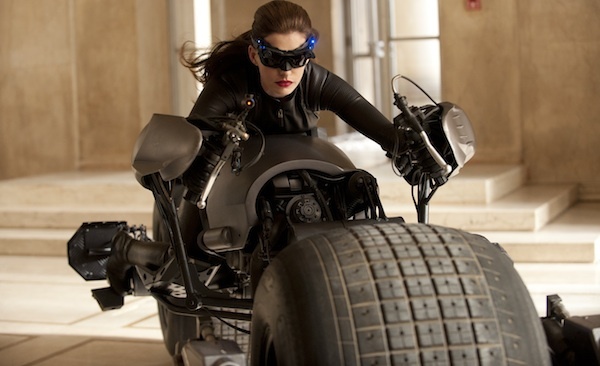
[SPOILERS BELOW]
Angeline: Thanks for the compliments! Agree about the bomb on the trucks bit. To me, that scene came at the tail end of everything that wasn't working about the film, so by then it didn't matter to me as much.
Eee: Great point about Alfred's absence throughout most of the film as a way to show Bruce had lost everything.
Yes, I do have a favourite scene. It's the one during Batman and Bane's first encounter. There's this dialogue bit that Bane has, followed by a move that totally caught me by surprise. And I absolutely love it. Batman, sensing that he is losing the fight, resorts to his EMP device to shut off the lights. Bane goes: "Oh, you think darkness is your ally. But you merely adopted the dark, I was born in it, moulded by it. I didn't see the light until I was already a man, by then it was nothing to me but blinding. The shadows betray you because they belong to ME!!" … And right then, Bane catches Batman's punch coming out the darkness, and throws him down in one lightning-quick move. It shocked the hell out of me! In that exact moment, Bane became a 100% certified pure BADASS.
Lisa: I loved approximately 49.67% of the movie.
I LOVED THE MOVIEEEEEEEEEEEEEEEEEEEEEEEEEE. :)
POSSIBLE SPOILERS AHEAD
IMO, TDKR gave a pretty solid ending and closure, if you will, for the characters. I could not be more satisfied with its ending. I'm glad Nolan didn't leave it shrouded in ambiguity like he did to Inception.
Despite my fierce loyalty to Nolan's work, I do admit that I emerged from the 2 3/4 hours a tad bit confused and a little disappointed after all the anticipation. There were plenty of plot holes that left many questions unanswered. If you would visit some of the Nolanfan forums online you'd see plenty interesting discussions raging on.
Watching it the second time, however, I loved it to bits. I did wish that Batman (not Bruce Wayne) had more screen time, and though I was sad that Alfred had to exit the movie so early, I believe now that it was necessary to show Batman stripped of everything he had, Alfred being the most important of all.
And yes, Bane's end was really anticlimactic. But Batman didn't kill. If he had to die upholding that principle then so be it. He had to make a point, that if he resorted to being judge, jury and executioner, then he was no better than the thugs he protect Gotham from.
I love the Batpod, too. And the score, terribly haunting.
Great review, by the way. Say, got a favorite scene? :)
Hi Wai, well written as usual. Couldn't have said it better. I wanted to love it the same way everyone raved about it. I just felt Nolan was trying to do too much (too many characters, too many sub plots, too many messages, etc). I just wished he focused on Bruce Wayne/Batman. I didn't mind the fact he made Bruce overly somber for added drama. But the length of the movie did kill me. Too many unnecessary scenes i.e. the followed the wrong truck ferrying the bomb.
Nismo: Thanks for the support. Nah, I don't mind the occasional jab at my reviews, as long as they're legitimate points. Makes for interesting discussion.
Just came back from seeing this and been spending hours upon hours reading reviews online. Most either it's mindblowing or it sucks. Yours is one of the more fair. Ignore the trolls, yours is neither the first or last to bring up Rocky. I see what you mean too. Good one.
Just came back from seeing this and been spending hours upon hours reading reviews online. Most either it's mindblowing or it sucks. Yours is one of the more fair. Ignore the trolls, yours is neither the first or last to bring up Rocky. I see what you mean too. Good one.
Thanks everyone for your comments, even if it's negative or contrarian. :)
NaviX: I do agree that this film is the most "comicbook-y" of the lot. Not sure if Nolan did it to appease the fans though. The guy tends to go his own way.
ksatriya: It's fascinating that you read the letdowns as an intentional attempt by Nolan to subvert expectations. Personally, I'd say that's assigning him a wee bit too much credit. He just dropped the ball in some aspects.
Since we're getting into SPOILER territory, what the heck:
Final battle: That doesn't hold water for me simply because the story being told is that of Bruce's "rise". Clue: It's in the title. So if the intention is to show he inspired others to help him, Nolan certainly did not build up enough of a case for it, especially with Catwoman. A short speech imploring her to "do the right thing" isn't enough. If anything, Nolan probably got Catwoman to finish Bane off because he didn't want Batman to be the one to kill (his one rule). That's clearly addressed when she says: "About that whole no guns thing… Turns out I'm not as committed to it as you are." This follows an earlier exchange where Batman says: "No guns, no killing", to which she replies "Where's the fun in that". Yes, I memorise movie dialogue. I'm like Rain Man that way. :) Anyway, Nolan already betrayed that whole non-killing policy when he made Batman purposefully break Bane's mask. He knew full well it would kill him. So that's another slip-up. But, whatever.
Emo Bruce: I see where you're coming from and I can buy that. On an intuitive level however, from all Nolan has presented of Wayne, it just comes across counter-intuitive. My point was simply that a personality as obsessively driven as his would not succumb to "emo-ness" for nearly a decade. A year maybe, to grieve, but then he'd be back on his feet, and if not back in the Batsuit, then certainly keeping a watchful eye on things. For one, he would certainly not have been so blur to miss Miranda Tate's true background. Or run his own company into the red.
You highlighted a good point about symbolism. For all the talk of the Nolanverse being "realistic" it really isn't. Still definitely more realistic than Burton's and Schumacher's versions of course. Haha.
Dave: the Despoiler: Nice nick and thanks for not wanting to kill me. :)
BadKitteyh: Hahaha! I knew I'd get some shit for citing "Rocky". But I still stand by it as a point of how TDKR's messy, crowded sub-plotting got in the way of telling a clean, expedient revenge/comeback story, which is what both stories essentially feature of you distill it down.
This review lost its credibility the moment it referenced Rocky. Ffs.
Actually, I've been warned to lower my expectations, so, no, I won't kill you.
*SPOILER ALERT* Seriously, stop reading if you haven't watched the show.
I think in many ways, the 'let-downs' come from Nolan's desire to subvert our expectations and also portray symbolism rather than what we expect to see.
1. The Final Battle
The point of Batman being 'robbed' of his physical victory over Bane is to show where true strength comes from. In the end, it was the hope he inspired in a certain character that finally won the day, rather than his brute strength or training. It's no coincidence that Nolan waited for this very moment to sideswipe him with a betrayal, and then rescue him with another character who finds redemption.
2. Emo Bruce
Possibly a method to appeal to the emo crowd? :P I think this is one of the things one has to 'accept'/suspend disbelief for in this movie. With crime supposedly wiped out and the streets clean, Gotham no longer needs Batman. But like Rachel said in Begins, Bruce needs Batman more than Gotham does. It is his one purpose in life. With that taken away, I was not suprised that he'd become a husk. Plus, he blames himself for Rachel's death.
I think there's a review somewhere mentioning that this movie eschews much of its realism for symbolism, which I think is quite true. Seen as a gritty, realistic crime drama (such as TDK was), it doesn't make much sense. It's very much like a Shakespearean tragedy, where the characters embody larger ideas in the Nolan-verse.
Ditto on the subplots etc, though. It felt a little bloated in places. And the editing could have been a bit better. A bit choppy and jolting. Kudos to Anne and Tom though. Great portrayals of their characters and Bane is endlessly quotable (seriously, try it). Christian is very much under-appreciated in his role. I think he made an iconic Batman/Bruce Wayne over the course of these three films.
I'm going to watch the show again :)
Insert obligatory death threat.
I think the movie fell short because after The Dark Knight, the popularity of the series exploded and Nolan tried to please more comic book fans by putting in a lot of elements that weren't necessary in order to please the fandom.
The Dark Knight was awesome because he wasn't trying to please anyone and this fell short because he tried.
Just my two cents.